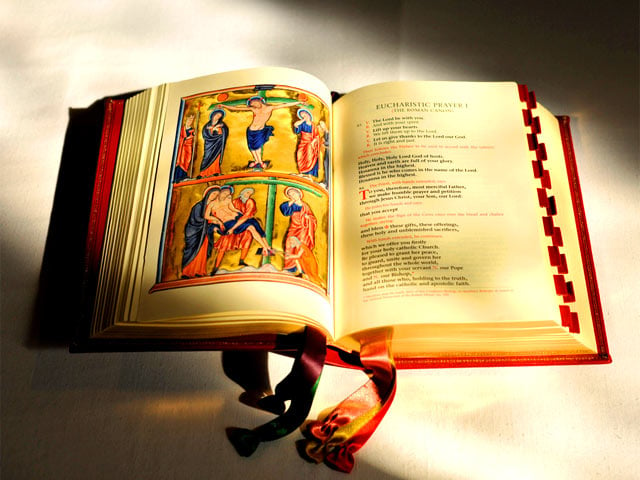- Home
- Our Community
- Our Faith
- Our Ministries
-
Parish Life
- Calendar of Events
- St. Aidan's Video Links
- Parish Blog
- News Archive
- Mass Etiquette and Information
- Ad Orientem News and Facts
- Catholic Links
- Prayers and Announcements
- Luis Dizon Reflections - Archive
- Bulletin
- Contact Us
- Search

The Widow’s Faith (32nd Sunday in Ordinary Time)
Click here for this Sunday’s Readings
After declaring that there would be a drought in the land of Israel, Elijah was commanded by the Lord to go up north to the Phoenician port town of Zarephath. While the reason for this command is not explicitly stated, it was presumably so that he would be spared the wrath of Ahab and Jezebel, who at this time were slaughtering the prophets of God. There, he meets the widow mentioned in our reading, who provides for the prophet even though she had very little provision. In return, God miraculously caused her flour and oil to last many days.
For the widow, it must have taken great faith to give what little provision she had to this prophet she had never met before, especially given that he was an Israelite and she a Phoenician. The Phoenicians were closely related to the Canaanites, the same people that Israel had driven out of the Holy Land. What’s more, Jezebel, who brought Baal worship to Israel, was a Phoenician. By responding in faith to Elijah’s request and promise, she stood in direct contrast to the unrighteous Jezebel, as an example of a faithful Gentile who believed in the word of the Lord.
The widow of Zarephath foreshadows the widow’s mite in our Gospel reading (Mark 12:38-44). Both show how the importance of offering everything up to God, and that even if one has just a little, God can make great things out of it when it is offered up in faith.
More significantly, Jesus would go on to use her as an example in Luke 4:24-26 of how foreigners will respond in faith even when God’s own people go astray. Thus, the widow at Zarephath becomes a foreshadowing of the conversion of the Gentiles. Like her, we were originally outside of God’s people, but have been brought near to Him and grafted into His people by faith (Romans 11:11-24, Ephesians 2:11-22).
J. Luis Dizon
